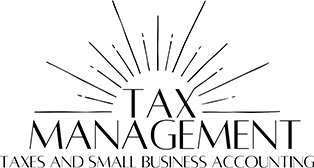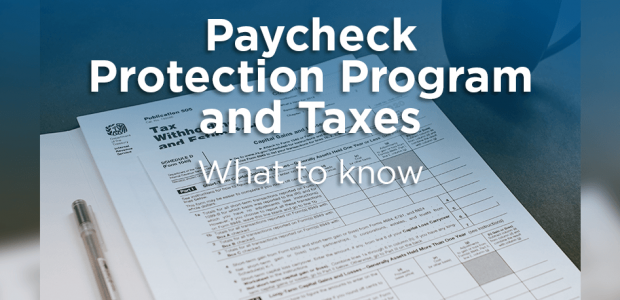The CARES Act spells out that the forgiven loan amount won’t be included in taxable income. That means you don’t pay taxes on the money that you receive. The aim of this loan is to provide businesses with the money to keep running and continue paying employees, not to create a tax burden for businesses receiving the funds.
But, there’s a catch. The IRS later released a notice clarifying how the forgiven loan amount would be treated when it comes to 2020 taxes:
“This notice clarifies that no deduction is allowed under the Internal Revenue Code (Code) for an expense that is otherwise deductible if the payment of the expense results in forgiveness of a covered loan pursuant to section 1106(b) of the Coronavirus Aid, Relief, and Economic Security Act (CARES Act), Public Law 116-136, 134 Stat. 281, 286-93 (March 27, 2020) and the income associated with the forgiveness is excluded from gross income for purposes of the Code pursuant to section 1106(i) of the CARES Act.”
Put simply: if the forgiven loan isn’t included in a business’s taxable income, the expenses paid for with the forgiven loan aren’t able to be included as a tax deduction. That may sound like a small detail, but it can potentially have a big impact on your final tax bill at the end of the year.
On November 18, the IRS released guidance clarifying that if you reasonably believe your PPP loan will be forgiven—regardless of whether it’s 2020 or later—any expenses you used your PPP loan to cover are not deductible.
What does this look like on your tax return?
Normally if a business has payroll, rent, mortgage interest, or utility expenses, these are deductible from taxable income. That deduction lowers your taxable income. Without that deduction, you’d owe the government more in taxes.
And that’s what is going to happen in this situation: you lose out on some tax deductions, so you may have to pay more when it comes time to file your taxes.
For example, let’s say your business is a C corporation that received $100,000 in a PPP loan. You used that money entirely on payroll expenses and qualified for loan forgiveness. The $100,000 that you receive won’t be included in taxable income at the end of the year.
But you won’t get a $100,000 tax deduction for the expenses you incurred. That means you could have an extra $21,000 tax liability at the end of the year ($100,000 * 21% corporate tax rate) that you wouldn’t have if you were allowed to take the deductions as normal.
While the PPP did provide you with an extra $100,000, you’re losing $21,000 in tax deductions that you’d normally get. In this example, you’re still going to have a net benefit of $79,000 from the program—money that you probably wouldn’t have otherwise. But for some business owners, this could be a big tax surprise that could be waiting for you at the end of the year from a program that is supposed to help your business stay afloat.
For more information contact Tax Management & Financial Horizons at 262 923-8100 Ext 0.


